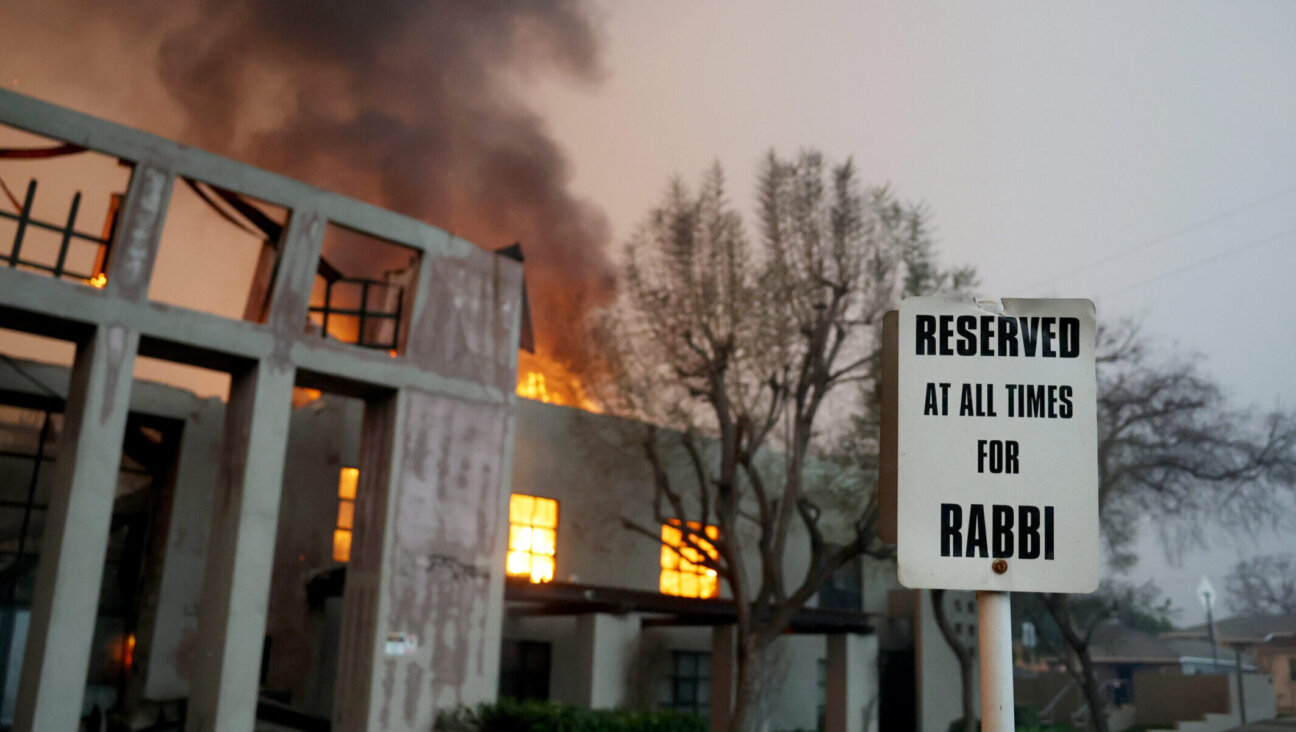John Kerry Tells Congress To Ignore What Israel Says on Iran Nukes

Image by getty images
Secretary of State John Kerry reportedly told U.S. senators to disregard Israeli reports of Iran’s progress in developing a nuclear weapon.
Also, his spokeswoman dismissed an Israeli Cabinet minister’s account of a proposed deal with Iran as “inaccurate, exaggerated, and not based in reality.”
Kerry’s tense meeting Wednesday with senators and Jen Psaki’s unusually blunt dismissal of claims by Yuval Steinitz, the strategic affairs minister, were signs of increasing tensions between Jerusalem and Washington over how best to keep Iran from obtaining a nuclear weapon.
Kerry met with senators privately in a bid to persuade them not to advance a U.S. House of Representatives bill that would intensify existing sanctions targeting Iran. Israeli Prime Minister Benjamin Netanyahu favors enhancing the sanctions, as do a number of leading senators.
Afterward, senators attending the meeting said Kerry advised them to ignore Israeli warnings that Iran was on the cusp of being weapons capable.
“I was supposed to disbelieve everything the Israelis had just told me, and I think the Israelis probably have a pretty good intelligence service,” Sen. Mark Kirk (R-Ill.) told Buzzfeed.
Netanyahu and his government have intensified their advocacy for new sanctions since reports from talks over the weekend between Iran and the major powers suggested that the powers were willing to ease sanctions on Iran should agree to drop uranium enrichment to 3.5 percent.
Most experts say that level is well below weaponization, but Israel has argued that Iran’s nuclear infrastructure is advanced to the point that even at that level, it could advance its weapons program. The House Foreign Affairs Committee on Wednesday held a hearing on the talks, which will be resumed Nov. 20, and members of both parties said Iran should at the minimum abide by U.N. Security Council resolutions and suspend all enrichment. “Let’s be clear – none of us here today were at the negotiating table, and as far as I know, none of us have yet been briefed on the details,” said Rep. Eliot Engel (D-N.Y.), the top Democrat on the committee. “So I think it would be wise for all of us to speak with some degree of caution until all the facts are known. Having said that, I’m deeply troubled by reports that the proposed agreement would not have required Tehran to stop all enrichment.”
The Obama administration has pushed back hard against reports it says are not based on the actual offer proposed at the Geneva talks, which has not been made public.
Steinitz said this week that the sanctions relief offered in Geneva could relieve Iran up to $40 billion of the $100 billion impact currently affecting Iran’s economy. Psaki was unusually blunt in dismissing that number.
“Without going into specifics about what we’re considering, that number, I can assure you, is inaccurate, exaggerated, and not based in reality,” she told reporters Wednesday.
Meanwhile, Obama on Wednesday consulted on the Iran talks with French President Francois Hollande.
Of the six major powers negotiating with Iran – also including Britain, Germany, China and Russia – France has emerged as the hardest line in insisting on Iranian disarmament, according to reports.
The White House’s account of the call pushed back against claims that France was the sole holdout over the weekend against inking a deal.
“The United States and France are in full agreement regarding the P5+1’s unified proposal to Iran and the approach to negotiations,” said the statement, using the abbreviation for the six major powers. “They consider the P5+1 proposal to be a sound step toward assuring the international community that Iran’s nuclear program is exclusively peaceful.”
A message from our Publisher & CEO Rachel Fishman Feddersen

I hope you appreciated this article. Before you go, I’d like to ask you to please support the Forward’s award-winning, nonprofit journalism so that we can be prepared for whatever news 2025 brings.
At a time when other newsrooms are closing or cutting back, the Forward has removed its paywall and invested additional resources to report on the ground from Israel and around the U.S. on the impact of the war, rising antisemitism and polarized discourse.
Readers like you make it all possible. Support our work by becoming a Forward Member and connect with our journalism and your community.
— Rachel Fishman Feddersen, Publisher and CEO























